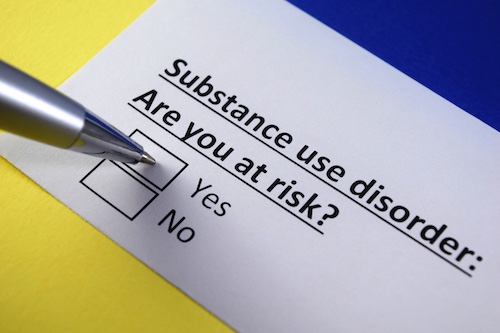Detox in Addiction Rehab: The First Step to Recovery
At Carolina Recovery, we provide compassionate and professional care for individuals struggling with drug or alcohol addiction. Our Durham rehab center offers medically assisted detox, inpatient treatment, and ongoing support to help patients achieve long-term recovery. With a focus on safety, medical supervision, and mental health care, our team is committed to guiding each patient through the detox process and into continued treatment with confidence and support.
Detox in addiction rehab is the starting point for anyone facing drug or alcohol addiction. It clears harmful substances from the patient’s system and helps manage withdrawal symptoms under medical supervision. Without detox, patients risk severe health complications and relapse.
At our Durham rehab center, detox programs provide a safe environment, medical intervention, and support that prepare patients for inpatient treatment and long-term recovery.
What is Detox in Addiction Rehab?
Detox in addiction rehab is the first step in treating drug or alcohol addiction. It clears substances from the patient’s system while providing medical support for withdrawal symptoms. This stage prepares patients for continued addiction treatment in a safe environment.
Defining Detox
Detox, also called detoxification, is the medical process of removing drugs or alcohol from the body. In a treatment facility, detox programs provide medical supervision to keep patients medically stable during withdrawal. Detox is not a complete treatment plan but a starting point for recovery.
Why Detox is Necessary
Substance use disorder changes the body and brain. When drug or alcohol use stops, the body reacts with physical symptoms that can be painful or dangerous. Detox helps patients safely manage these symptoms and avoid relapse. Medical staff may prescribe medications to ease severe withdrawal and reduce health complications.
Types of Detox Programs
Detox programs vary based on substance, health status, and risk factors. Inpatient detox keeps patients in a treatment center under 24-hour medical supervision. Outpatient detox programs allow patients to live at home but visit a detox center for care. Both approaches aim to safely manage withdrawal, but inpatient treatment is recommended for severe withdrawal or co-occurring mental health conditions.
Connection to Long-Term Recovery
Detox alone does not stop drug abuse or alcohol addiction. It is the entry point into addiction treatment programs that include counseling, therapy, and support groups. By completing detox, patients are ready for inpatient treatment or other treatment options that build long-term recovery. At our Durham rehab center, detox in addiction rehab is followed by structured care to help patients avoid relapse and continue progress.
Why Detox Matters in Addiction Treatment
Detox matters in addiction treatment because it addresses withdrawal safely and creates the foundation for long-term recovery. Without this step, patients face higher risks of relapse, health complications, or even death.
The Link Between Substance Abuse and Detox
Substance abuse and drug addiction change how the body functions. When drug use or alcohol use stops, the patient’s system reacts with withdrawal. The detox process removes drugs or alcohol while medical staff provide care to stabilize patients. This step reduces the risks linked to sudden withdrawal and prepares patients for treatment programs.
Managing Withdrawal Symptoms
Withdrawal symptoms vary based on the substance, length of use, and several factors such as family history or co-occurring mental health conditions. Patients may experience shaking, vomiting, anxiety, or alcohol withdrawal that can turn severe. Medically assisted detox uses prescribed medications to safely manage symptoms and help patients remain medically stable.
Reducing Risk Factors and Complications
Detox in addiction rehab prevents health complications that can occur if someone tries to quit cold turkey. Severe withdrawal without medical intervention can lead to seizures, heart strain, or other life-threatening outcomes. Medical supervision in a detox center ensures that patients receive the right care and remain in a safe environment.
Preparing for Continued Care
Detox is not the final goal. It is the patient’s entry point into addiction treatment. After detox, patients at our Durham rehab center move into structured treatment plans that address mental health, substance use disorder, and relapse prevention. Detox makes it possible for patients to begin therapy, support groups, and other treatment options with a clear and stable foundation.
The Drug and Alcohol Detox Process
The drug and alcohol detox process follows clear steps that help patients safely manage withdrawal and prepare for continued treatment. Each stage focuses on medical supervision, stability, and patient support.
Patient’s Entry and Assessment
The detox process begins with a full medical assessment. Medical staff review substance use, health complications, and co-occurring mental health conditions. This evaluation guides the treatment plan and determines whether inpatient detox or outpatient detox programs are needed. At this stage, substance abuse counselors and other clinicians work together to build a safe approach for the patient.
Managing Withdrawal Symptoms
Withdrawal symptoms start as the patient’s system clears drugs or alcohol. Physical symptoms may include sweating, vomiting, shaking, or insomnia. Severe withdrawal can involve seizures or alcohol withdrawal that requires immediate medical intervention. Medical staff provide continuous monitoring to keep patients medically stable and respond quickly to changes.
Medically Assisted Detox
Medically assisted detox uses prescribed medications to reduce discomfort and risk during withdrawal. Alcohol detox drugs and other approved medications help ease cravings, control anxiety, and prevent severe complications. This medical model of care ensures that patients can safely manage withdrawal and complete the detox process in a controlled setting.
Inpatient vs Outpatient Detox Programs
Inpatient detoxification provides 24-hour monitoring in a treatment facility. It is recommended for patients with severe withdrawal or high-risk factors. Outpatient detox programs allow patients to live at home while attending scheduled appointments at a detox center. Both options aim to safely manage withdrawal, but inpatient treatment offers greater protection during the most critical phase of detox.
Transition to Recovery Care
Detox is only the first step. Once patients complete detox, they move into treatment programs that address drug abuse, alcohol addiction, and mental health. At our Durham rehab center, the detox process connects directly to inpatient treatment and long-term recovery support. This continued care helps patients avoid relapse and build a stable recovery path.
Essential Components of Safe Detox
Safe detox relies on medical supervision, structured support, and treatment strategies that protect the patient during withdrawal. These components ensure that detox in addiction rehab is effective and reduces the risk of relapse or medical harm.
Medical Supervision
Medical supervision is the core of a safe detoxification program. Patients are monitored around the clock in an inpatient setting to stay medically stable. Medical staff check vital signs, manage health complications, and provide immediate intervention if severe withdrawal develops. This approach reduces the dangers linked to quitting drugs or alcohol without care.
Medication Support
Medically assisted detox often includes the use of prescribed medications. These medications ease physical symptoms such as shaking, vomiting, or insomnia. In alcohol detox, certain drugs lower the risk of seizures and dangerous alcohol withdrawal. Medication support allows patients to safely manage withdrawal and continue with the detox process under controlled conditions.
Emotional and Clinical Support
Detox also requires emotional support. Substance abuse counselors and other clinicians provide guidance and counseling during the process. Support groups may be introduced to help patients cope with cravings and reduce anxiety. This support builds trust and helps patients stay engaged in treatment.
A Safe Environment
A treatment facility must provide a safe environment free from access to alcohol, illegal drugs, or triggers linked to substance abuse. At our Durham rehab center, patients enter a secure detox center where they receive care, medical intervention, and counseling. This environment supports stability and helps patients complete detox without outside risks.
Building the Foundation for Treatment
The three essential components of safe detox are medical supervision, medication support, and emotional care. These elements create the conditions for patients to complete detox and move into structured treatment programs. Safe detox is not only about clearing substances but about preparing patients for continued care and long-term recovery.
Why Choose Our Durham Rehab Center for Detox
Choosing the right treatment facility is an essential step in recovery. Our Durham rehab center provides safe, structured, and medically supervised detox programs that prepare patients for lasting change.
Medically Assisted Detox
Our center offers medically assisted detox for drug or alcohol addiction. Medical staff prescribe medications to reduce withdrawal symptoms, prevent severe health complications, and keep patients medically stable. This approach allows patients to safely manage detox without the risks linked to quitting cold turkey.
Inpatient Detoxification
We provide inpatient detox in a secure treatment facility with 24-hour monitoring. Patients receive continuous care from medical staff, substance abuse counselors, and other clinicians. This inpatient setting ensures that severe withdrawal or medical emergencies are managed immediately.
Support for Mental Health and Co-Occurring Conditions
Detox is not only about physical symptoms. Many patients with substance use disorder also experience mental health challenges. Our Durham rehab center addresses co-occurring conditions with addiction medicine, counseling, and mental health services. This support helps patients prepare for treatment programs that focus on long-term recovery.
Transition Into Continued Care
Detox is the patient’s entry point into a complete treatment plan. After detox, patients move directly into structured inpatient treatment, therapy, and support groups. Our treatment center connects detox with substance abuse treatment to reduce relapse risk and support continued progress.
A Safe Environment for Recovery
Patients need a safe environment to begin recovery. Our Durham rehab center offers a detox program free from exposure to alcohol, drugs, or triggers linked to substance abuse. With medical supervision, counseling, and a focus on recovery goals, patients have the foundation needed to complete detox and begin lasting treatment.
Begin Detox in Addiction Rehab with Carolina Recovery!
The team at Carolina Recovery is ready to help you take the first step toward lasting recovery. Our Durham rehab center provides safe detox programs, medical supervision, and continued care for drug and alcohol addiction.
Schedule an appointment with us at (812) 408-8842 today!







